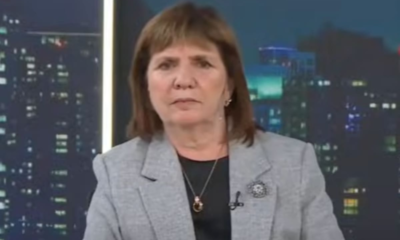INTERNACIONAL
Boasberg grills DOJ over remarks from Trump and Noem, floats moving migrants to Gitmo in action-packed hearing
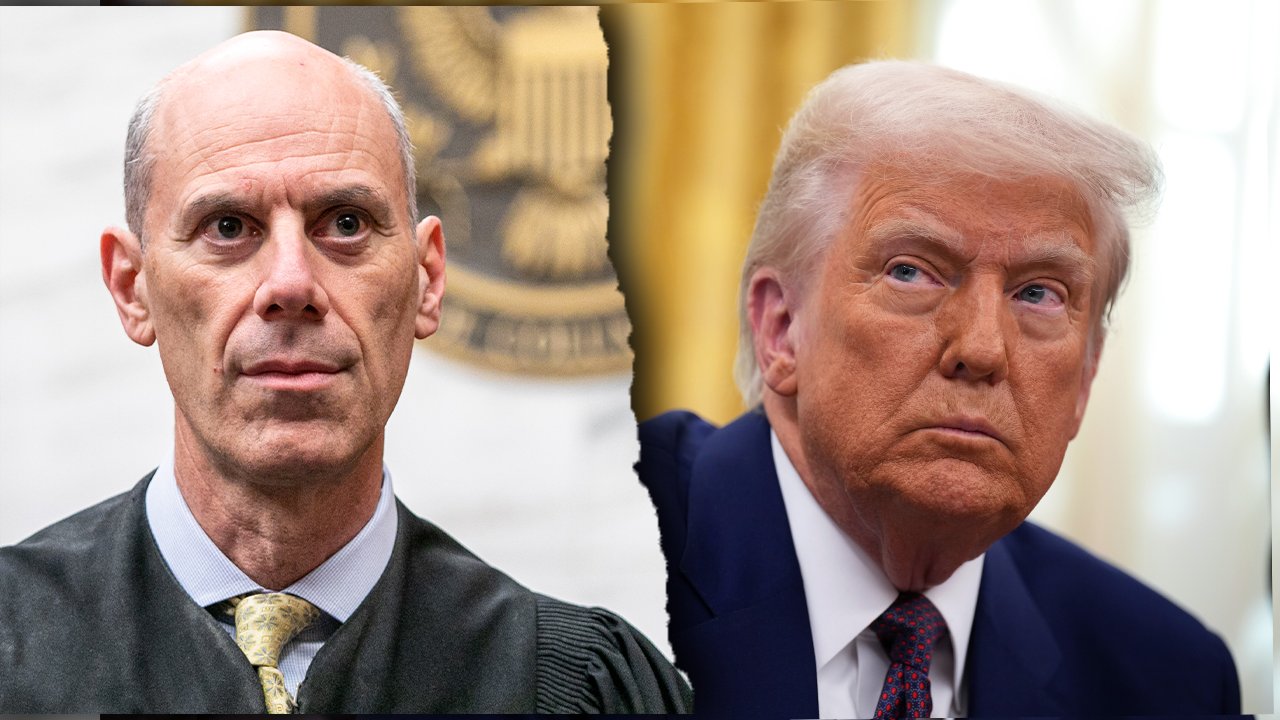
U.S. District Judge James Boasberg pressed Justice Department lawyers Wednesday evening over public comments President Donald Trump and other Cabinet officials made about deportation proceedings under the Alien Enemies Act and floated the idea of moving some migrants to Guantánamo Bay.
During the hearing, Boasberg specifically pressed Justice Department lawyers about statements made by Trump and DHS Secretary Kristi Noem about CECOT, the maximum-security prison in El Salvador where the U.S. has deported hundreds of migrants, and the White House’s ability to secure someone’s release.
He asked specifically about Trump’s remarks in an interview with ABC News, in which Trump told ABC News he «could» secure the return of Kilmar Abrego Garcia, a Salvadoran and alleged gang member, back to the U.S. from El Salvador if he chose to.
«Is the president not telling the truth?» Boasberg asked Justice Department lawyer Abhishek Kambli. «Or could he secure his release?»
WHO IS JAMES BOASBERG, THE US JUDGE AT THE CENTER OF TRUMP’S DEPORTATION EFFORTS?
The question goes to the heart of whether El Salvador has custody of the deported migrants, a major question at the heart of the case.
Another key part of the hearing focused on the lawfulness of the Alien Enemies Act proclamation used by Trump to quickly deport migrants from the U.S. to the Salvadoran prison.
Boasberg asserted that the Supreme Court had not, in fact, upheld Trump’s use of the Alien Enemies Act to deport certain migrants, quoting from the high court’s ruling before noting to Justice Department lawyers that the Supreme Court «did not decide one way or another» on the validity of Trump’s proclamation.
Boasberg floated the idea of moving the migrants detained at CECOT to the U.S. Guantánamo Bay detention center, where the government could then ascertain if they are members of Tren de Aragua, the violent Venezuelan gang the Trump administration said prompted its use of the Alien Enemies Act.
He also grilled Kambli over Noem’s comment that CECOT is «one of the tools in our toolkit» the U.S. «can use» against individuals who commit crimes against the American people, and comments from White House press secretary Karoline Leavitt that the U.S. has provided $6 million to El Salvador to house migrants at the CECOT prison.
In response, Kambli said these remarks sometimes «lack nuance» and described the payments to El Salvador as «grants.»
U.S. District Judge James Boasberg and President Donald Trump (Getty Images)
The fast-paced hearing was marked by sharp lines of questioning from Boasberg, both over the claims made by Trump officials and whether the early wave of migrants deported to CECOT received any due process or prior notice before they were deported to El Salvador.
Boasberg asked Lee Gelernt, an ACLU lawyer arguing for the plaintiffs, if they had any representations on whether the first class of migrants deported to CECOT under the Alien Enemies Act had prior notice or received any due process protections.
Gelernt reiterated that the first group of migrants deported received no prior notice, telling the court the individuals had received declarations from the government as they were being loaded onto buses on the way to the airport from which they would be sent to the Salvadoran prison.
TRUMP ADMIN SEEKS EMERGENCY RELIEF OF BOASBERG CONTEMPT THREAT
Gelernt also noted that the notices handed to migrants said «NO REVIEW IS AVAILABLE» in English at the top.
That phrase has since been removed from the declarations but has not been replaced with any details on eligibility for review or habeas relief.
«They got some notice,» Kambli told Boasberg, notring he was not sure of the «precise contours of that.»
«If it wasn’t even 12 hours, you’re not going to say that they got due process,» Boasberg fired back.
Boasberg ended the hearing by telling both parties he planned to issue an order Thursday explaining next steps and giving the government until Friday to file any further declarations. From there, plaintiffs will have until Monday to review discovery, including requests for additional information.
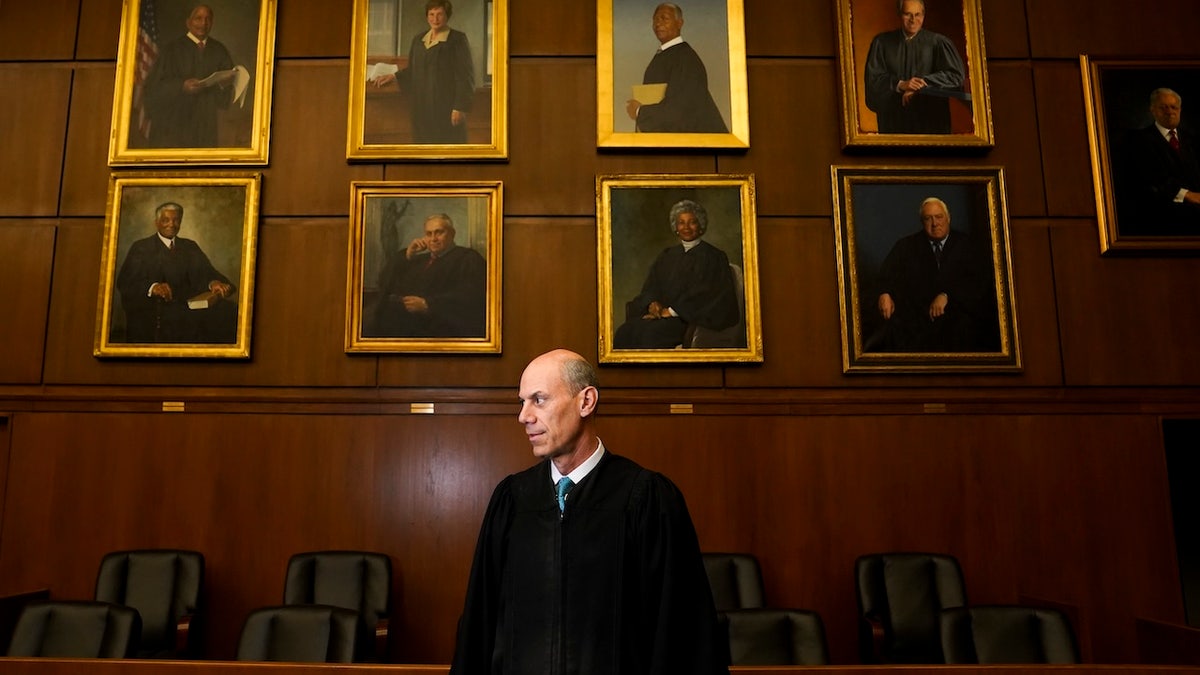
Judge James E. Boasberg at E. Barrett Prettyman Federal Courthouse in Washington, D.C. (Carolyn Van Houten/Washington Post via Getty)
Trump officials have sought to portray Boasberg, a high-profile judge in D.C., as the face of judicial overreach, and today’s hearing could put him back in their crosshairs.
Unlike the previous lawsuit heard by Boasberg in March, which sought to temporarily block Trump’s use of the Alien Enemies Act to swiftly deport certain U.S. migrants, the plaintiffs are asking the court to hear a larger request for more lasting relief.
The preliminary injunction was filed as a class and seeks to protect two classes of migrants — detainees already removed from the U.S. to the infamous Salvadoran prison and those still detained on U.S. soil at risk of imminent removal.
The plaintiffs are seeking broader and more lasting relief for two groups of individuals at risk of what they argue is «grave and irreparable harm» under the Alien Enemies Act.
For U.S. detainees who could be removed under the law, plaintiffs asked for an order blocking their removal under the AEA and requiring the Trump administration to provide them at least 30 days notice before any planned removals, notice they said would be sufficient to allow them to challenge their removals in U.S. court.
Migrants who were already deported to CECOT could face a trickier path to relief.
TRUMP DEMANDS SUPREME COURT STEP IN AFTER FEDERAL JUDGES BLOCK HIS AGENDA: ‘THESE PEOPLE ARE LUNATICS’
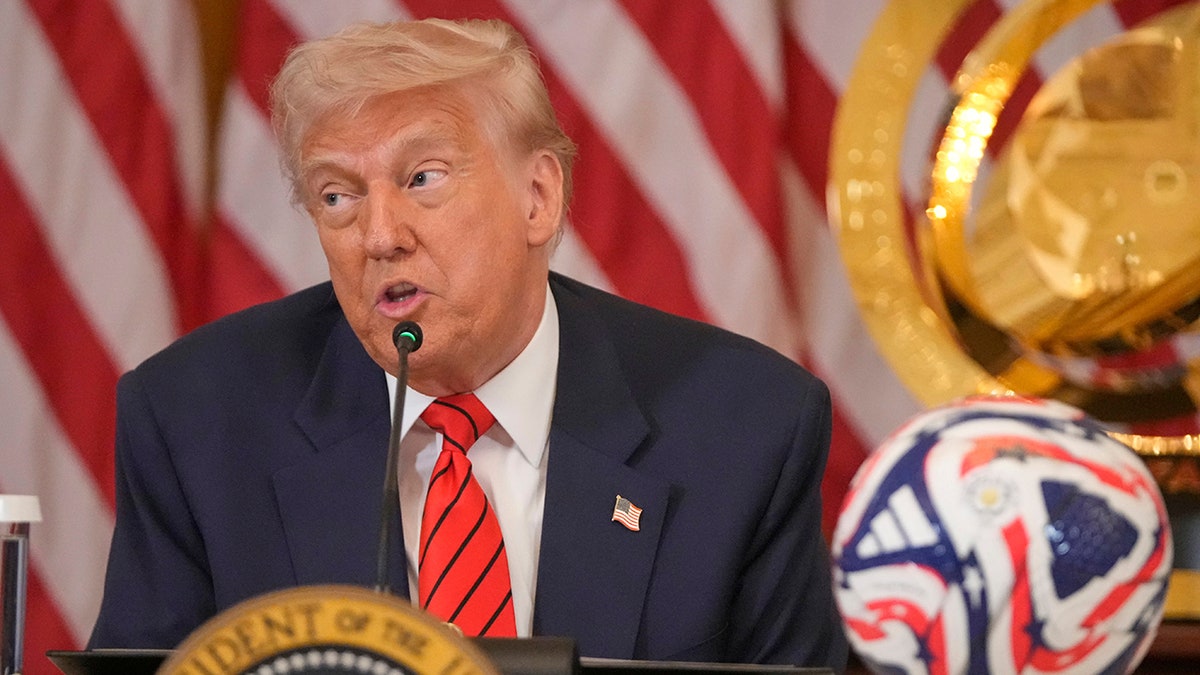
President Donald Trump speaks during a FIFA task force meeting in the East Room of the White House May 6, 2025. (AP Photo/Mark Schiefelbein)
The plaintiffs asked Boasberg in their amended request to order the Trump administration to not only facilitate the return of already deported migrants, but to take «all reasonable steps» to do so.
This could include requiring the administration to request any contractors or agents in El Salvador to transfer the individuals from CECOT and into the «physical custody» of the U.S., they said.
It’s unclear whether the Trump administration will take any steps to comply with the order should Boasberg move to grant the injunctive relief plaintiffs are seeking. If their responses are any indication, compliance in the near term seems unlikely.
4 MORE DEMS TRAVEL TO EL SALVADOR TO PUSH FOR ABREGO GARCIA’S RETURN TO US
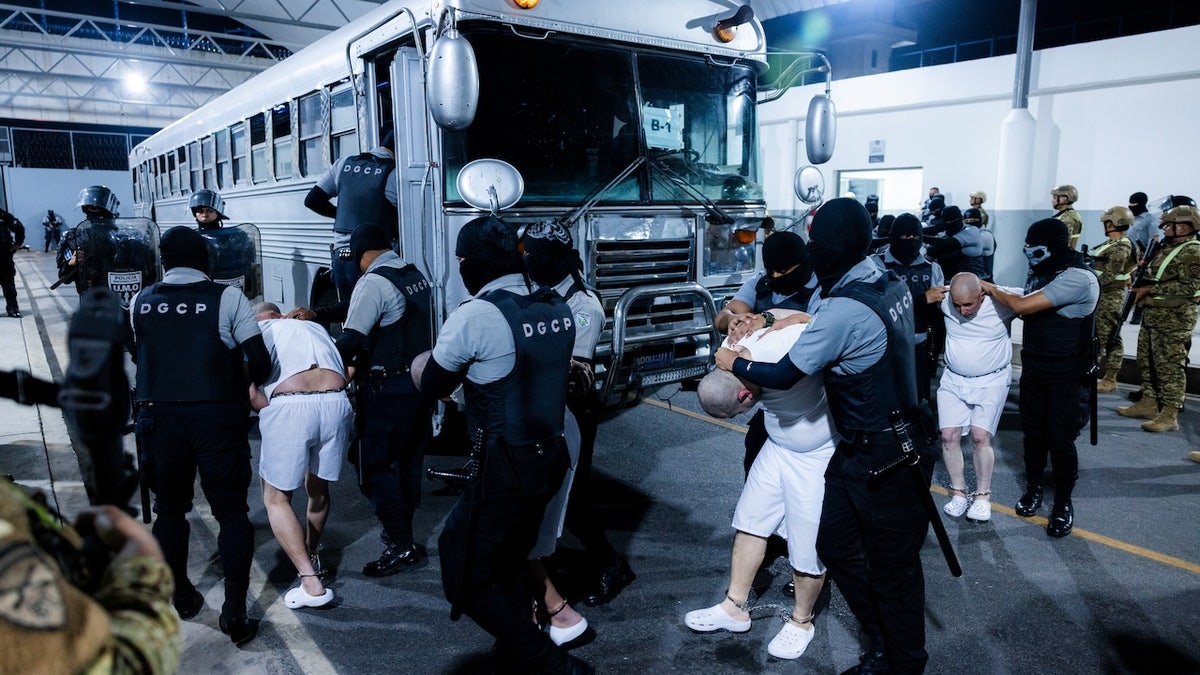
Alleged gang members in El Salvador after being deported from the U.S. March 31, 2025. (El Salvador Press Presidency Office/Anadolu via Getty)
The hearing comes as the Trump administration has grown increasingly defiant in the face of court orders to return migrants from CECOT back to the U.S., including two migrants erroneously deported to the maximum security prison in March and ordered back to the U.S. by two separate federal judges.
The administration has refused to return them. So far, the Trump administration has not said whether it has returned any migrants deported from the U.S. to CECOT under the law.
And the identities of these individuals can be difficult to track. To date, the Trump administration has not released a list of the names of individuals it has deported to El Salvador under the Alien Enemies Act‚ and the Salvadoran government has also shielded their identities from public disclosure.
The administration’s growing resistance on the issue has sparked fresh concern from Trump critics and some court observers who have cited fears the administration could be testing boundaries on executive branch authorities.
CLICK HERE TO GET THE FOX NEWS APP
The plaintiffs also cited fears of harm to the migrants.
They said in their filing that, absent injunctive relief, the Trump administration «will be free to send hundreds more individuals to the notorious Salvadoran prison, where they may be held incommunicado for the rest of their lives.»
Federal Courts,Tren de Aragua,Illegal Immigrants,Elections,Donald Trump,Immigration,Latin America
INTERNACIONAL
Schumer, Democrats try to save face, blame GOP for possible government shutdown
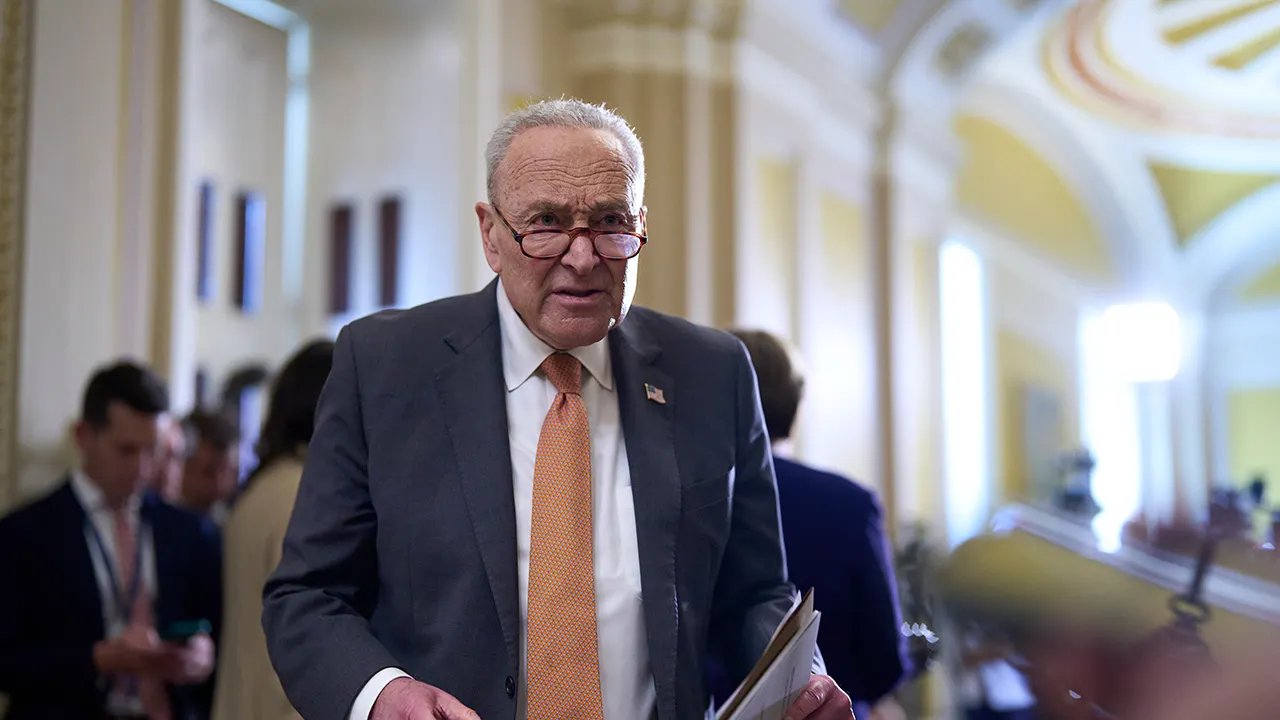
NEWYou can now listen to Fox News articles!
Congressional Democrats are trying to get on the same page and display a unified front after threatening to derail the government funding process.
Senate Minority Leader Chuck Schumer, D-N.Y., and House Minority Leader Hakeem Jeffries, D-N.Y., met behind closed doors Tuesday night, along with the top Democrats in the House and Senate Appropriations Committees, to plot a course forward in the forthcoming government funding fight.
SENATE WEATHERS DEM OPPOSITION, ADVANCES FIRST GOVERNMENT FUNDING BILL
Senate Minority Leader Chuck Schumer, D-N.Y., turns to an aide during a news conference at the Capitol in Washington, D.C., on June 3, 2025. (AP Photo/J. Scott Applewhite)
The meeting came after Democrats in the upper chamber overwhelmingly supported the first government funding bill to hit the Senate floor, one that would fund military construction and Veterans Affairs. Ahead of the vote, Senate Democrats had signaled they may vote against the bill and further obstruct the appropriations process because of highly partisan legislation rammed through the upper chamber by Senate Republicans.
«We all want to pursue a bipartisan, bicameral appropriations process,» Schumer said. «That’s how it’s always been done, successfully, and we believe that, however, the Republicans are making it extremely difficult to do that.»
The meeting just off the Senate floor was meant to get congressional Democrats on board with a messaging plan over the next weeks and months ahead of the Sept. 30 deadline to fund the government.
CONGRESSIONAL REPUBLICANS FACE BRUISING BATTLE TO AVOID GOVERNMENT SHUTDOWN
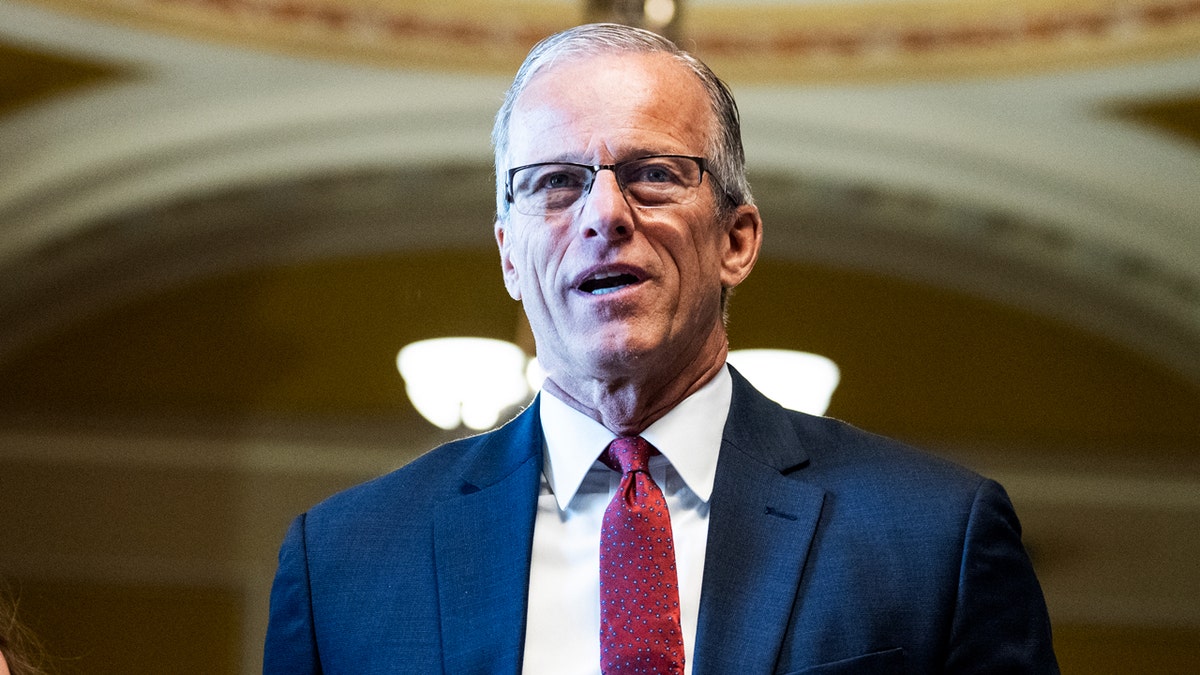
Senate Majority Leader John Thune, R-S.D., is seen after the Senate luncheons in the U.S. Capitol on June 24, 2025. (Tom Williams/CQ-Roll Call, Inc via Getty Images)
It was also likely designed to prevent a repeat of the Democratic debacle in March, when Schumer broke with Jeffries and threatened to shutter the government before ultimately caving and providing Republicans the votes necessary to advance yet another government funding extension, known as a continuing resolution.
Republicans are quick to point out that when Schumer led the upper chamber, none of the House GOP’s spending bills made it to the floor — in Congress, the spending process begins in the lower chamber.
Since taking over earlier this year, Senate Majority Leader John Thune, R-S.D., has committed to returning to regular order, or passing each of the dozen spending bills to fund the government, and trying to get the appropriations process back to normal.
However, it’s a feat that hasn’t been successfully done in Washington since the late 1990s.
«Frankly, I think a lot of us around here think [this] is long overdue,» Thune said.
However, Democrats contend that their trust in Republicans is wearing thin after two major partisan bills, one being President Donald Trump’s «big, beautiful bill,» and the other the president’s $9 billion clawback package, were pushed through the chamber without any Democratic input.
‘BAIT AND SWITCH’: SCHUMER WARNS OF BITTER FUNDING FIGHT OVER GOP CUTS PLAN

Representative Hakeem Jeffries, a Democrat from New York, speaks during a news conference at the U.S. Capitol in Washington, D.C., on Feb. 6, 2025. (Tierney L. Cross/Bloomberg via Getty Images)
Thune argued that Senate Democrats were using the rescissions package to shut down the appropriations process and effectively shut down the government.
In the Senate, most bills that come to the floor require at least 60 votes to smash through the filibuster, meaning that most legislation requires bipartisan support to some extent.
Earlier this year, the House GOP produced a partisan government funding extension that was a tough pill for Senate Democrats to swallow, but they still ultimately opted to vote for it. This time around, they’re demanding more involvement in the process.
CLICK HERE TO GET THE FOX NEWS APP
Jeffries said that congressional Democrats would play ball if the process was «bipartisan and bicameral in nature» and put the onus of a partial government shutdown at the feet of congressional Republicans.
«House Republicans are, in fact, marching us toward a possible government shutdown that will hurt the American people,» he said.
However, House Speaker Mike Johnson, R-La., threw the responsibility on Democrats over whether the government would shutter or stay open come the end of September.
«They’re gaming out how they can shut the government down,» Johnson told Bloomberg Government.
INTERNACIONAL
Ucrania: el presidente Volodimir Zelenski enfrenta críticas y protestas por una nueva ley anticorrupción
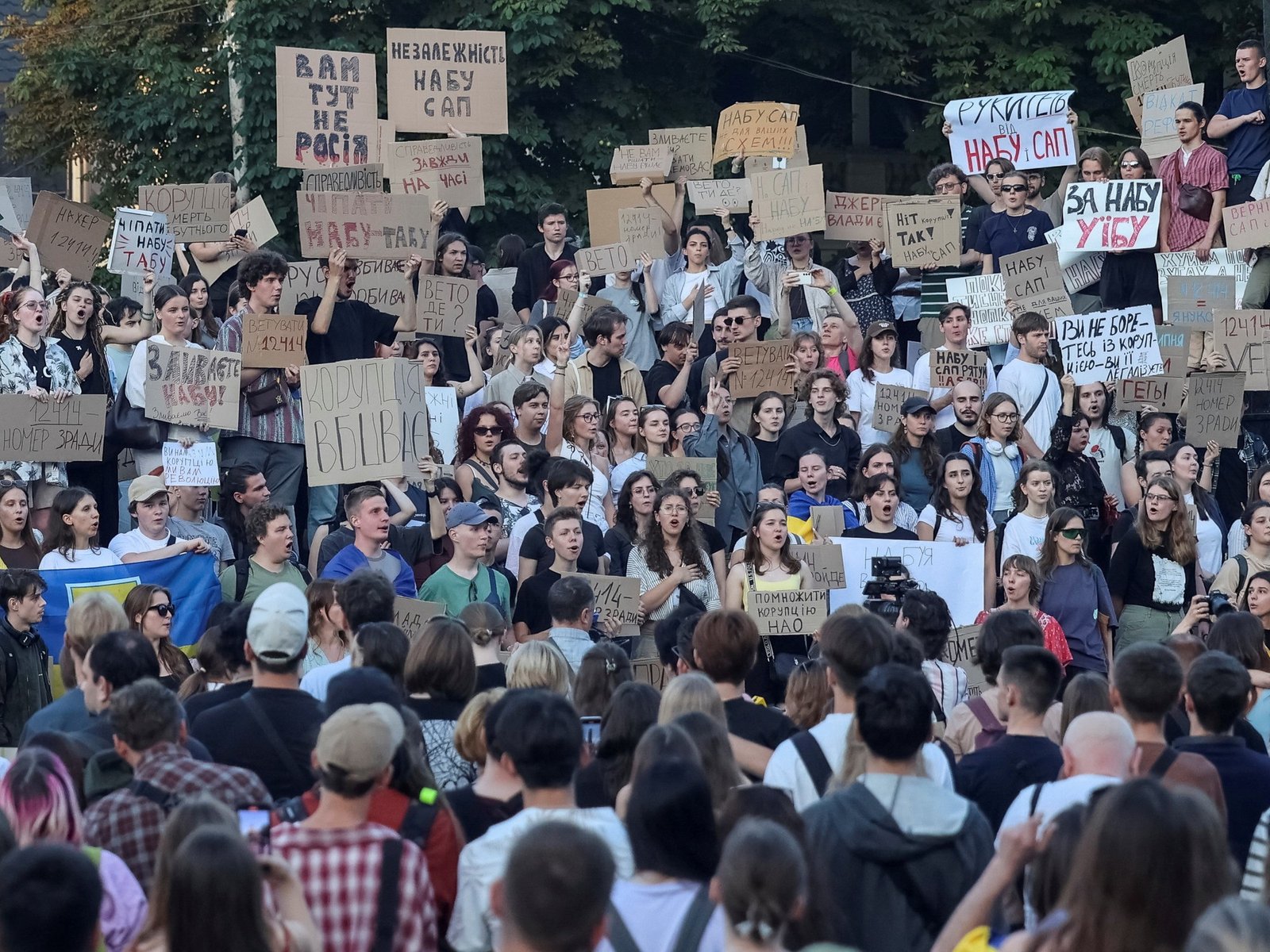
Advertencia de funcionarios de la UE
Negociaciones en Estambul
Ucrania,Volodímir Zelenski,Rusia,Guerra Rusia-Ucrania
INTERNACIONAL
Trump admin official to meet with Israel, Qatar amid push for Gaza ceasefire

NEWYou can now listen to Fox News articles!
Special Envoy Steve Witkoff is expected to meet with Israeli and Qatari officials in Rome on Thursday as the U.S. pushes for a ceasefire deal in Gaza.
Hamas and Israel are engaging in indirect negotiations to end the war that has raged on for nearly two years. However, Witkoff’s itinerary depends on the progress made in the talks. If the parties make enough progress in Rome, Witkoff will reportedly travel to Doha to finalize the deal, according to Axios.
The outlet also reported that sources indicated the meeting in Rome could suggest that a deal is near — possibly just days away.
Earlier this month, Israel agreed to a U.S.-backed, 60-day ceasefire proposal that would lead to the end of the war. This deal includes a phased release of hostages, the withdrawal of Israeli troops from parts of Gaza and talks on ending the conflict, according to Reuters.
Special Envoy Steve Witkoff is expected to meet with Israeli and Qatari officials in Rome on Thursday to secure a deal to end the war in Gaza. (Dawoud Abo Alkas/Anadolu/Kevin Dietsch/Getty Images)
ISRAEL, HAMAS TALKS DRAG AS AID GROUP CHAIR TELLS UN TO STOP ACTING LIKE THE ‘MAFIA’
«My representatives had a long and productive meeting with the Israelis today on Gaza. Israel has agreed to the necessary conditions to finalize the 60 Day CEASEFIRE, during which time we will work with all parties to end the war. The Qataris and Egyptians, who have worked very hard to help bring peace, will deliver this final proposal. I hope, for the good of the Middle East, that Hamas takes this deal because it will not get better — IT WILL ONLY GET WORSE,» President Donald Trump wrote on Truth Social on July 1.
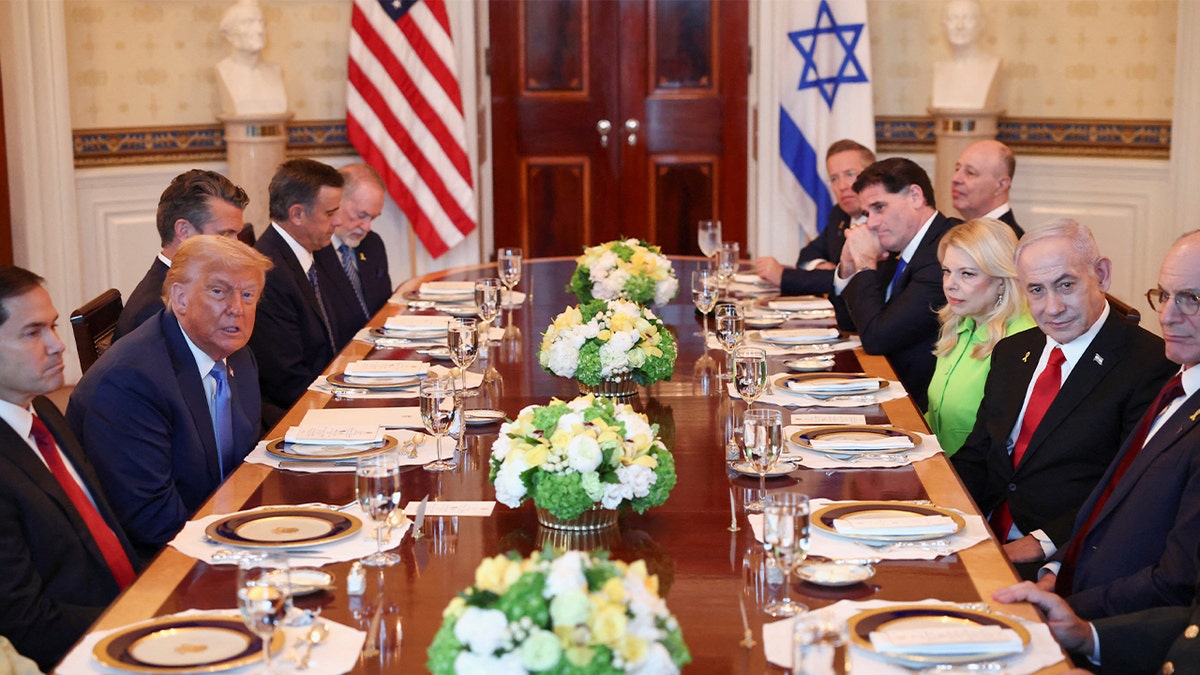
President Donald Trump holds a bilateral dinner with Israeli Prime Minister Benjamin Netanyahu, with Defense Secretary Pete Hegseth and Secretary of State Marco Rubio in attendance, at the White House in Washington, D.C., July 7, 2025. (REUTERS/Kevin Lamarque)
ISRAEL ACCEPTS TRUMP-LED CEASEFIRE PLAN THAT COULD END GAZA WAR WITHIN 60 DAYS
Trump appeared optimistic about the possibility of Israel and Hamas reaching a deal to end the war. On July 16, while signing the HALT Fentanyl Act, Trump thanked Witkoff, praising him for doing «a fantastic job» and said that there was «some good news on Gaza,» though he did not elaborate.
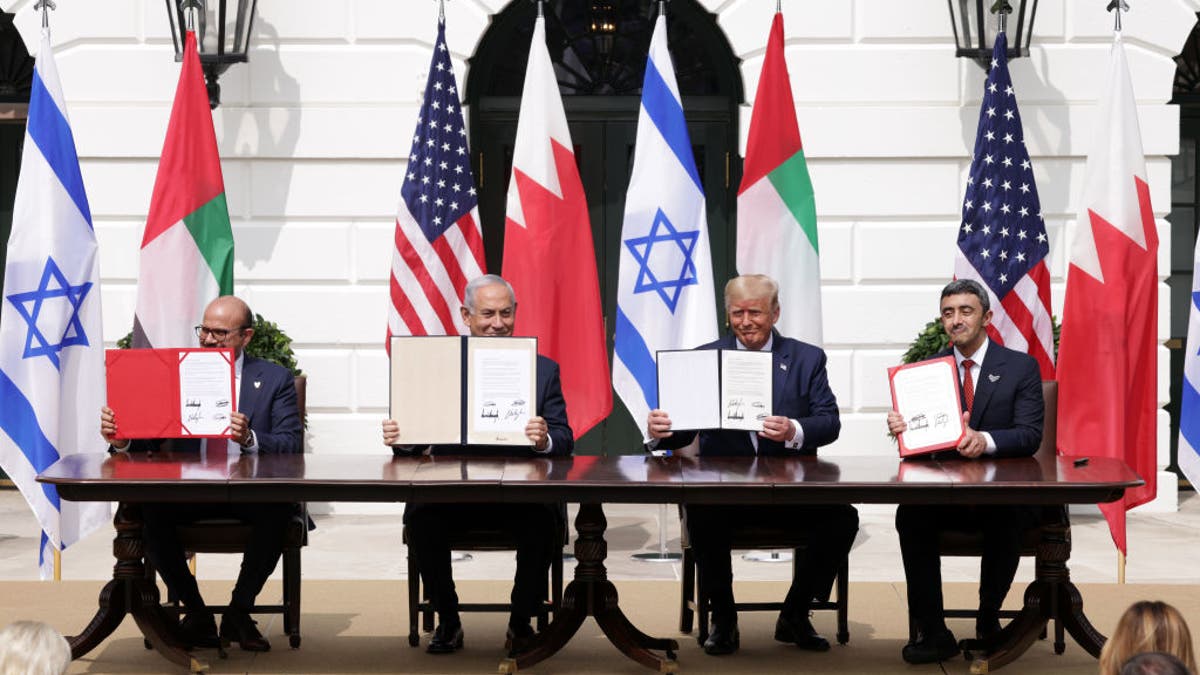
From left to right, Foreign Affairs Minister of Bahrain Abdullatif bin Rashid Al Zayani, Prime Minister of Israel Benjamin Netanyahu, President Donald Trump and Foreign Affairs Minister of the United Arab Emirates Abdullah bin Zayed bin Sultan Al Nahyan participate in the signing ceremony of the Abraham Accords on the South Lawn of the White House on Sept. 15, 2020, in Washington, D.C. (Photo by Alex Wong/Getty Images)
TRUMP PRESSURES ISRAEL TO END GAZA CONFLICT AS HE EYES ABRAHAM ACCORDS EXPANSION
If Trump can secure an end to the war, it could mean an expansion of the Abraham Accords, one of the signature efforts of Trump’s first administration, which saw Israel sign normalization agreements with the United Arab Emirates, Bahrain, Morocco and Sudan. However, Trump has yet to detail which countries would be added.
Israeli Minister of Foreign Affairs Gideon Sa’ar said on June 30 that Israel was «serious» about seeking an end to the conflict. He added that Jerusalem has an interest in «countries, such as Syria and Lebanon, our neighbors, to the circle of peace and normalization.»
CLICK HERE TO GET THE FOX NEWS APP
Fox News Digital’s Greg Wehner and Caitlin McFall contributed to this report.

 POLITICA3 días ago
POLITICA3 días agoExpulsada del Gobierno, Victoria Villarruel empieza a tomar distancia, pero no tiene proyecto político para este año

 POLITICA3 días ago
POLITICA3 días agoLa CGT evalúa adelantar a octubre el recambio de sus autoridades y define una movilización contra Milei

 POLITICA2 días ago
POLITICA2 días ago🗳️ El chamuyo de las elecciones en la Provincia: se postulan, pero no a asumen

























